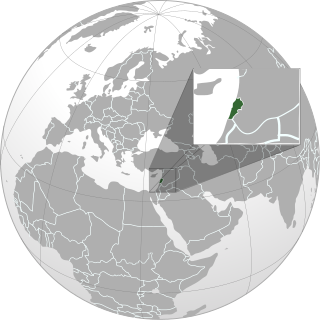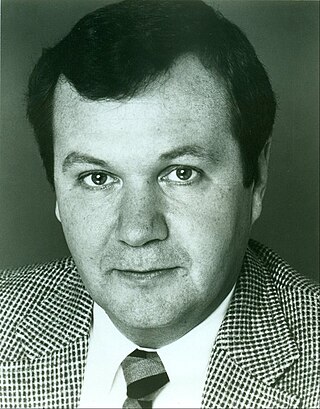This article needs additional citations for verification .(December 2014) |
| |||
|---|---|---|---|
| +... |
This is a list of notable events in the history of LGBT rights that took place in the year 1981.
This article needs additional citations for verification .(December 2014) |
| |||
|---|---|---|---|
| +... |
This is a list of notable events in the history of LGBT rights that took place in the year 1981.

Lesbian, gay, bisexual, transgender and queer (LGBTQ) movements are social movements that advocate for LGBTQ people in society. Although there is not a primary or an overarching central organization that represents all LGBTQ people and their interests, numerous LGBT rights organizations are active worldwide. The first organization to promote LGBT rights was the Scientific-Humanitarian Committee, founded in 1897 in Berlin.

Church and Wellesley is an LGBT-oriented enclave in Toronto, Ontario, Canada. It is roughly bounded by Gerrard Street to the south, Yonge Street to the west, Charles Street to the north, and Jarvis Street to the east, with the core commercial strip located along Church Street from Wellesley south to Alexander. Though some LGBT-oriented establishments can be found outside this area, the general boundaries of this village have been defined by the Gay Toronto Tourism Guild.
This is a list of notable events in the history of LGBT rights that took place in the year 1978.
Operation Soap was a raid by the Metropolitan Toronto Police against four gay bathhouses in Toronto, Ontario, Canada, which took place on February 5, 1981. Nearly three hundred men were arrested, the largest mass arrest in Canada since the 1970 October crisis, before the record was broken during the 2006 Stanley Cup Playoffs in Edmonton, Alberta.

George Hislop was one of Canada's most influential gay activists. He was one of the earliest openly gay candidates for political office in Canada, and was a key figure in the early development of Toronto's gay community.

Lesbian, gay, bisexual, and transgender (LGBT) people living in Lebanon face discrimination and legal difficulties not experienced by non-LGBT residents. Various courts have ruled that Article 534 of the Lebanese Penal Code, which prohibits having sexual relations that "contradict the laws of nature", should not be used to arrest LGBT people. Nonetheless, the law is still being used to harass and persecute LGBT people through occasional police arrests, in which detainees are sometimes subject to intrusive physical examinations.

Lesbian, gay, bisexual, and transgender (LGBT) people in Moldova face legal and social challenges and discrimination not experienced by non-LGBTQ residents. Households headed by same-sex couples are not eligible for the same rights and benefits as households headed by opposite-sex couples. Same-sex unions are not recognized in the country, so consequently same-sex couples have little to no legal protection. Nevertheless, Moldova bans discrimination based on sexual orientation in the workplace, and same-sex sexual activity has been legal since 1995.
This is a timeline of notable events in the history of the lesbian, gay, bisexual and transgender (LGBT) community in Canada. For a broad overview of LGBT history in Canada see LGBT history in Canada.
This is a list of notable events in the history of LGBT rights that took place in the 1960s.
This is a list of notable events in the history of LGBT rights that took place in the 1970s.

LGBT pride is the promotion of the self-affirmation, dignity, equality, and increased visibility of lesbian, gay, bisexual, transgender and queer (LGBTQ) people as a social group. Pride, as opposed to shame and social stigma, is the predominant outlook that bolsters most LGBT rights movements. Pride has lent its name to LGBT-themed organizations, institutes, foundations, book titles, periodicals, a cable TV channel, and the Pride Library.

Helem is the first LGBTQIA+ rights non-governmental organization in the Arab world, founded in Beirut, Lebanon, in 2001. Its mission is to lead a non-violent struggle for the liberation of lesbian, gay, bisexual, transgender, queer, intersex, and other persons with non-conforming sexualities and/or gender identities (LGBTQIA+) in Lebanon and the MENA region from all sorts of violations of their individual and collective civil, political, economic, social, and cultural rights. Helem’s name was also an acronym in Arabic that stood for “Lebanese protection for the LGBT community”.
This article gives a broad overview of lesbian, gay, bisexual and transgender (LGBT) history in Canada. LGBT activity was considered a crime from the colonial period in Canada until 1969, when Bill C-150 was passed into law. However, there is still discrimination despite anti-discrimination law. For a more detailed listing of individual incidents in Canadian LGBT history, see also Timeline of LGBT history in Canada.

Peter Maloney is a Canadian lawyer, businessman, activist and former politician, most noted as one of the first Canadian political figures ever to come out as gay and as a prominent builder of Toronto's LGBT community in the 1970s and 1980s.

Rainbow capitalism is the involvement of capitalism, corporate capitalism, and consumerism in appropriating and profiting from the LGBT movement. It developed in the 20th and 21st centuries as the LGBT community became more accepted in society and developed sufficient purchasing power, known as pink money. Early rainbow capitalism was limited to gay bars and gay bathhouses, though it expanded to most industries by the early-21st century.
The Right to Privacy Committee (RTPC) was a Canadian organization located in Toronto, and was one of the city's largest and most active advocacy groups during the 1980s, a time of strained police-minority relations. The group focused on the Toronto Police Service's harassment of gays and infringement of privacy rights, and challenged police authority to search gay premises and seize materials. At the time of the 1981 bathhouse raids, RTPC was Canada's largest gay rights group with a mailing and volunteer list of 1,200 names. People associated with the RTPC include Michael Laking, Rev. Brent Hawkes, John Alan Lee, Dennis Findlay, Tom Warner, and George W. Smith.

The following is a timeline of lesbian, gay, bisexual, and transgender (LGBT) history in the 20th century.
The Pussy Palace Raid occurred on September 14, 2000, when Toronto police raided a lesbian bathhouse known as the "Pussy Palace" during the "2000 Pussies" event. Two undercover female police officers attended and investigated the event prior to the raid. Five plainclothes male police officers then entered and searched the club, including private rooms. There were around 350 women in attendance at the time, many of whom were nude or semi-clad.
On August 5, 1969, the Atlanta Police Department led a police raid on a screening of the film Lonesome Cowboys at a movie theater in Atlanta, Georgia, United States.

Pride Month, sometimes specified as LGBTQ Pride Month, is a monthlong observance dedicated to the celebration of LGBTQ pride, commemorating the contributions of lesbian, gay, bisexual, transgender and queer(LGBTQ) culture and community. Pride Month is observed in June in the United States, coinciding with the anniversary of the 1969 Stonewall riots, a series of gay liberation protests.